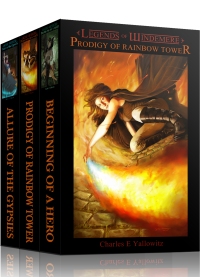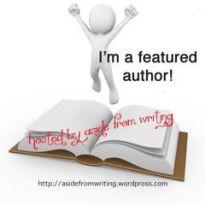
Sauron
We all know this topic since I touch on it from time to time. For those who don’t know, tropes are things that are used very often in a genre. They are similar to clichés, but not always seen as a negative. Yet, the two words tend to be used interchangeably these days, which is part of the reason for the post. Best examples are the ‘Chosen One’ and the ‘Tower Princess’. Both are getting their own post this week.
So, where does perspective come into play? At first, you may think I’m talking about the readers. If a person has limited experience with a trope then it won’t appear to be stale or overdone. Not until they run into more often. Younger readers will find these common characters and plot twists as amazing while older ones will be annoyed. This is one reason why many authors seek to avoid using them. They’re targeting the older demographics even though you have members of those groups who may not read the genre often enough to be over the tropes. Anyway, that’s not the perspective I’m talking about.
I mean the way a trope is presented by an author. Not turning it entirely on its head, but coming at it from a different direction. The character or object will still have the same purpose it always does. You’re just seeing it from a different angle. This can change the entire story too. Some tropes that people think show weakness can be demonstrated as strong. Those who are amazing can be seen as weak or pathetic. Again, it’s all about perspective and how we show these things to the reader. The author has full control over this, so take advantage of the god-like status.
Best example, which has become a trope itself, would be showing that the evil villain isn’t as evil as people thought. Instead of the pure evil character like older stories, you see things from their perspective. It could be that they’re still doing evil, but now you see the reason. It could wrong and not how any sane person would do it. May even be downright messed up. Yet, you now have a trope that has been altered enough to stand out among its peers. In fact, each new reason for doing evil can be seen as a change of perspective enough that you can always keep the ‘evil villain’ trope in some form.
Doing this isn’t easy. You can go too far and lose the trope entirely, which isn’t bad. It just means you may have to alter other things that depended on it. You may not go far enough, which will show and bring about the using braying of ‘cliché’ from those who read books like their lives depend on it. To be fair, it does in some cases. This is why I think one has to be careful with altering the perspective of the trope. You need to make it clear that you’re using one and clear that it’s different. Go too far in either direction and you’re left with a mess. Good luck.





I actually don’t mind the use of tropes if the writing is engaging. I know people like to hate on the chosen one trope because we see it a lot, thanks to Star Wars and many other series. I only complain when the use of the trope feels empty (at least to me). Like when a chosen-one character is all powerful for seemingly no reason and without cost. Or like the love triangle, which seems a staple of many young adult novels—again with little reason behind it other than the expectation of some readers.
LikeLike
I’ve wondered a lot about the use of love triangles in YA novels. I notice it’s usually adults hating on it too. So, I’m guessing that’s just an aspect for teenagers who are just exploring the concepts of love and relationships. I’ve noticed that such things turn up in that age demographic without much reason too.
LikeLiked by 1 person
Love triangles seem pretty ubiquitous, yes. Sometimes they work, sometimes they don’t, especially if they take the place of a solid plot or seem designed just to have people shipping Team Edward or Team Jacob. (And I only use those names because they are well-known sides of a triangle.)
LikeLike
Never understood the point of the Twilight love triangle. It was made clear who would pair off at the end. Guess it worked enough that people felt like they could take teams. I didn’t even read the books or watch the movies, but I knew what would happen.
LikeLike
Reblogged this on Chris The Story Reading Ape's Blog.
LikeLike
Thanks. 😊
LikeLiked by 1 person
Reblogged this on The Story Bodyguard.
LikeLike
Thanks for sharing.
LikeLike
Great discussion, Charles. It would be cool to have a follow-up post listing maybe five overused fantasy tropes. Would give me a better idea of what a trope looks like. Right now I’m trying to think of a Thriller trope and am having a though time.
LikeLiked by 1 person
Thanks. Fantasy tropes are fairly easy to figure out. The wise wizard, the evil warlord, greedy dragons, egotistical elves, rude dwarves, and the list keeps going.
LikeLiked by 1 person
Helpful.
LikeLike
Flipping or flexing tropes has become a subgenre, all its own, honestly. Whether you flip it outright (Red Rising Hood is bad, Big Bad Wolf is good) or gender swap (Red Riding Hood is a boy, Big Bad Wolf is a girl) or just add layers (Red and Wolf are freedom fighters, etc.), people recognize the original and look forward to seeing the author’s take.
LikeLike
True. Thought, I notice it’s been done so much that some people get annoyed. I think some groups see it as a lack of true originality, which I can’t entirely argue with. Building off so much of an old idea can strike non-writers as lazy and I’ve met a few authors who fall into that category.
LikeLike
If people get annoyed, they don’t have to read it. Look at the back cover first. Should be easy. Some people seem to get more joy out of complaining. If you try to create something 100% original then they can’t relate to the characters or whatever.
Besides, all us writers know the effort of creating 90,000 words is the same in any genre or format.
LikeLike
Exactly. People complain on sight. They jump online and get a dose of serotonin from the attention.
LikeLiked by 1 person
Reblogged this on Kim's Musings.
LikeLike
Thanks for sharing.
LikeLike
Looking forward to the posts this week.
LikeLike
Thanks.
LikeLike
Reblogged this on NEW BLOG HERE >> https:/BOOKS.ESLARN-NET.DE.
LikeLike
Thanks for the reblog.
LikeLike